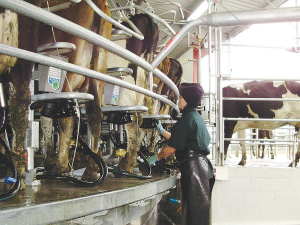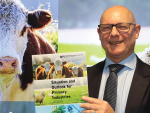Dairy facial eczema (FE) can cost farmers at least $100,000 each year in lost milk production, a recent study has found.
The Ministry for Primary Industries’ (MPI) Sustainable Farming Fund is supporting the Facial Eczema Action Group – made up of veterinarians, dairy farmers and rural professionals – to explore ways of raising awareness of FE so that more farmers take preventative action.
Many cows don’t show clinical signs of FE. As a result, farmers often don’t know why milk loss is happening and end up drying off their cows early.
“It’s hitting farmers hard in the pocket. They’re losing 0.14-0.35kg milk solids per cow per day,” said Emma Cuttance, a dairy veterinarian and head of Veterinary Enterprises Group (VetEnt) Research – which is leading the project.
“We worked out that one of the herds in our study had lost $125,000 just in milk production.”
She says zinc is currently the main way of treating FE. “But many farmers don’t administer enough to control the toxin that causes FE.”
Trial work in 2014, examining zinc concentrations in the blood of 1200 cattle from over 100 farms in the North Island, showed that about 70% of cattle did not have enough zinc to protect against FE.
“Blood testing is the best way to determine how badly affected the cows are if they have FE. However, getting farmers to do blood tests can be tricky because of the cost and time involved,” Cuttance said.
The project team brought in AgResearch to examine the wellbeing of cows affected by FE to see if there are other ways of identifying symptoms.
Steve Penno, director of investment programmes at MPI, said its support of the project recognised that FE was an issue that needed to be addressed.
“Whichever way you look at it, it’s in farmers’ best interests to proactively manage this disease, by improving cattle health and wellbeing and the bottom line.”
He says to help prevent the disease, farmers need to monitor the spore count on their own farm.
They are advised to start a management programme when spore counts trend upwards to 30,000 spores/g and continue until spore counts are 10,000 spores/g or below for at least three weeks.
Blood testing is advised to check the effectiveness of zinc administration.











